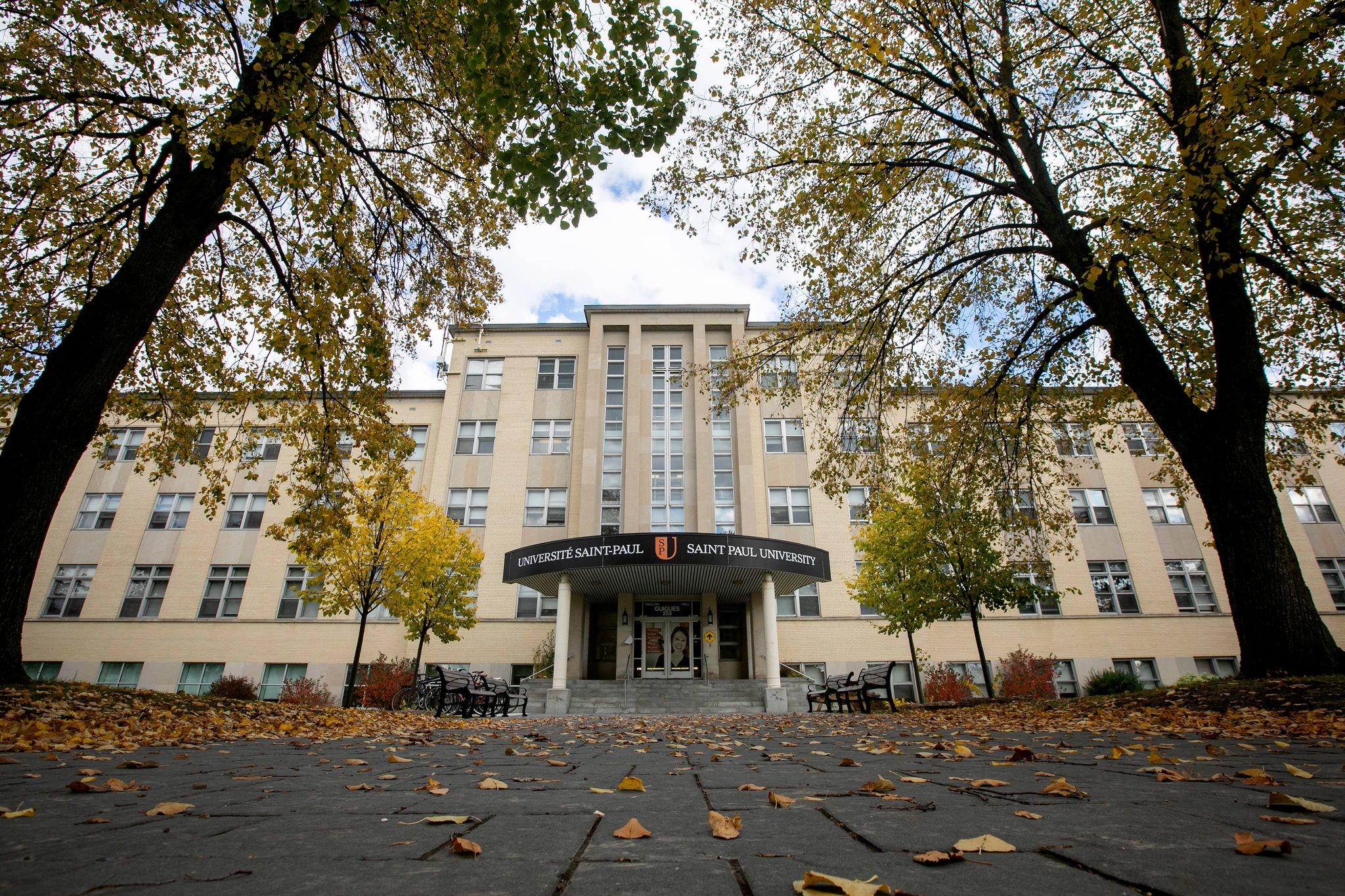Total undergraduates
25,000
International tuition fee
$30,000
School address
223 MAIN ST
Online or distance education
Yes
Number of graduate programs
10
Number of undergraduate programs
---
Number of graduate students
800
Number of undergraduate students
5,000
Quick facts about our school
The University of St. Paul is a prestigious institution known for its academic excellence and dedication to student success. Located in Minneapolis, Minnesota, the university offers a wide range of programs in various fields of study, including business, education, technology, and the humanities. With a strong emphasis on research and innovation, students at the University of St. Paul have the opportunity to engage in hands-on learning experiences and collaborate with faculty members who are experts in their fields.
The university is committed to providing a supportive and inclusive learning environment for all students, fostering a sense of community and belonging. Through diverse academic offerings, extracurricular activities, and campus resources, the University of St. Paul aims to prepare its students for successful careers and lifelong learning. With a focus on academic excellence, ethical leadership, and global engagement, the university prepares students to become leaders in their fields and make a positive impact on society.
School highlights

Life at our school
At the University of St. Paul, students experience a vibrant and engaging campus life. The university is known for its strong sense of community, where students have ample opportunities to connect with their peers and professors. There are numerous clubs and organizations on campus, catering to a wide range of interests, allowing students to pursue their passions and meet like-minded individuals. The campus also hosts various events and activities, fostering a dynamic and inclusive environment for students to learn and grow.
In addition to the rich social scene, the University of St. Paul offers a rigorous academic environment, with a diverse range of programs and courses to choose from. Students benefit from small class sizes, personalized attention from faculty, and hands-on learning experiences that prepare them for successful careers. The university's commitment to excellence in education is evident in its state-of-the-art facilities and resources, providing students with the tools they need to excel in their studies and beyond. Overall, life at the University of St. Paul is characterized by a supportive community, academic rigor, and countless opportunities for personal and professional growth.
The University of St. Paul is a reputable educational institution known for its commitment to academic excellence and student success. Located in a serene and picturesque campus setting, the university offers a wide range of degree programs in various fields including business, humanities, and social sciences. With a dedicated faculty members and state-of-the-art facilities, students at the University of St. Paul are provided with a well-rounded and enriching educational experience that prepares them for successful careers in their chosen fields. The university prides itself on its student-centered approach to learning, fostering a supportive and inclusive community where students can thrive both academically and personally.
The University of St. Paul is committed to creating a sustainable future through various initiatives and programs. The university integrates sustainability into its academic curriculum, research endeavors, and campus operations. Students are encouraged to engage in sustainable practices through programs such as sustainable living workshops, community gardening projects, and environmental awareness campaigns.
The university also focuses on reducing its carbon footprint by implementing energy-efficient technologies, promoting waste reduction and recycling efforts, and investing in renewable energy sources. By fostering a culture of sustainability and environmental stewardship, the University of St. Paul is shaping a better future for its students and the broader community.
Overview Vision at University of St. Paul:
The University of St. Paul aims to be a premier institution dedicated to academic excellence, character formation, and community engagement. Our vision is to provide a supportive and inclusive environment where students can grow intellectually, socially, and spiritually.
Bullet points related to the vision:
1. Academic Excellence: Offering a challenging and innovative curriculum that prepares students for future success in their careers and personal lives.
2. Character Formation: Fostering values such as integrity, compassion, and leadership through various programs and initiatives.
3. Community Engagement: Promoting a culture of service and social responsibility by encouraging students to actively participate in community projects and initiatives.
4. Supportive Environment: Providing resources and support to ensure the holistic development and well-being of every student.
5. Inclusivity: Creating a diverse and welcoming community that celebrates differences and promotes tolerance and understanding among all members.
6. Growth and Transformation: Empowering students to realize their full potential and become ethical leaders who positively impact the world around them.
The campus experience at the University of St. Paul is vibrant and rewarding, offering a blend of academic and extracurricular opportunities. With a focus on fostering a supportive community, students can engage in various activities to enhance their learning experience and personal growth. The university's campus is equipped with modern facilities, including state-of-the-art classrooms, research labs, libraries, and recreational spaces, providing students with a conducive environment for their academic pursuits. The campus also hosts events, workshops, and clubs that allow students to connect with peers, faculty, and industry professionals, creating a dynamic and inclusive community that nurtures creativity and collaboration.
Programs offered at our schools
The University of St. Paul offers a wide range of programs designed to meet the diverse academic needs and interests of its students. At the undergraduate level, the university offers a variety of bachelor's degree programs across different fields such as business, education, psychology, and more. These programs are designed to provide students with a solid foundation in their chosen field of study and prepare them for successful careers upon graduation.
For graduate students, the University of St. Paul offers a number of master's and doctoral programs that provide advanced education and training for individuals looking to further their academic and professional goals. These programs are led by experienced faculty who are dedicated to helping students succeed and excel in their chosen fields. With a focus on academic excellence and real-world application, the programs at the University of St. Paul provide students with the knowledge, skills, and experience they need to achieve their full potential.
The University of St. Paul is known for its strong academic programs and welcoming community. With a focus on holistic education and a commitment to social justice, students at St. Paul can expect a well-rounded education that prepares them for success. The admission process at St. Paul emphasizes not just academic achievements, but also personal qualities such as leadership, community involvement, and a passion for learning. Prospective students can expect a rigorous application process that ensures all admitted students are dedicated to the values of the university.
The University of St. Paul offers a comprehensive undergraduate admissions process for prospective students. Applicants are required to submit their high school transcripts, standardized test scores, letters of recommendation, and a personal statement outlining their academic goals and accomplishments. The admissions committee also considers extracurricular activities, community involvement, and work experience when evaluating applicants. The university seeks to admit students who are well-rounded individuals with a passion for learning and a desire to contribute to their community. Prospective students are encouraged to connect with the admissions office to learn more about the application process and requirements for admission to the University of St. Paul.
The University of St. Paul prides itself on its rigorous undergraduate admissions process, designed to select bright and ambitious students who will thrive in the university's academic environment. Prospective students are evaluated based on their academic achievements, extracurricular activities, personal statement, and letters of recommendation. The admissions committee looks for well-rounded individuals with a passion for learning and a desire to contribute positively to the university community. Accepted students can expect a supportive and enriching academic experience at the University of St. Paul, preparing them for successful futures in their chosen fields.
The University of St. Paul offers a variety of graduate programs for students looking to further their education and advance their careers. The admission process for graduate programs at the University of St. Paul is competitive, with each program having specific requirements and deadlines.
Some key points related to the admission of Graduate programs at the University of St. Paul include:
- A completed online application form, along with the required application fee.
- Official transcripts from all previous colleges and universities attended.
- Letters of recommendation from professors or professionals in the field.
- A statement of purpose outlining the applicant's academic and career goals.
- Standardized test scores, such as the GRE or GMAT, may also be required for some programs.
- International students may need to provide additional documentation, such as proof of English proficiency.
- Admissions decisions are typically based on the overall quality of the applicant's academic record, relevant work experience, letters of recommendation, and statement of purpose.
Overall, the University of St. Paul looks for well-rounded and motivated individuals who are dedicated to their academic and professional growth.
The University of St. Paul, also known as St. Paul University, is a prestigious institution located in Ottawa, Canada. The admission requirements for undergraduate programs at the University of St. Paul typically include a high school diploma or equivalent, with specific course prerequisites varying depending on the program of interest. Prospective students are typically required to submit an application form, official transcripts, letters of recommendation, and a personal statement outlining their academic interests and goals. Some programs may also require standardized test scores, such as the SAT or ACT.
For graduate programs at the University of St. Paul, applicants are typically required to hold a bachelor's degree from an accredited institution, with minimum GPA requirements varying by program. Additional requirements may include letters of recommendation, a resume or CV, a statement of purpose, and standardized test scores such as the GRE or GMAT. International students may also be required to demonstrate English proficiency through tests like the TOEFL or IELTS. Overall, the University of St. Paul seeks to admit motivated and dedicated students who demonstrate academic potential and a commitment to their chosen field of study.
The University of St. Paul has an admission deadline of February 1st for the upcoming academic year. Prospective students are encouraged to submit their application materials, including transcripts, letters of recommendation, and personal statements, by this date to be considered for admission. Late applications may be accepted on a case-by-case basis, but it is recommended that students adhere to the February 1st deadline to ensure timely consideration for admission to the University of St. Paul.
At University of St. Paul, students have access to a variety of scholarships and financial aid options to help fund their education. The university offers merit-based scholarships for academic excellence, as well as need-based financial aid for students who demonstrate financial need. Additionally, students may be eligible for work-study programs or external scholarships to further support their education costs. The university's financial aid office is dedicated to helping students navigate the financial aid process and explore all possible options to make their education more affordable. With a commitment to providing accessible education, University of St. Paul strives to support students in achieving their academic and career goals.
-
International students
-
Canadian students
-
Provincial students
Notes for the international students
See scholarships and other financial award programs on our website Also, see employment opportunities available to our international students
Keep in mind that the above are just rough estimates; the actual tuition fees vary widely, depending on many factors For a better estimate for YOU, please contact us
Managing finances as a student at UNIVERSITY OF ST PAUL is vital for planning your expenses and achieving financial stability. One key aspect is creating a budget that outlines your income and expenses. Start by identifying all sources of income, whether it be student loans, scholarships, part-time job earnings, or financial aid. Next, list all your expenses, including tuition fees, books, housing, food, transportation, and any other essential costs.
Additionally, it's important to prioritize your spending and distinguish between needs and wants. Allocate the majority of your budget to essential expenses such as tuition, housing, and food, and limit discretionary spending on non-essential items. Look for ways to save money, such as purchasing used textbooks, cooking at home instead of eating out, using public transportation or carpooling, and taking advantage of student discounts.
Moreover, take advantage of financial resources and workshops offered by UNIVERSITY OF ST PAUL's student services department. They may provide guidance on budgeting, saving, managing debt, and investing. Stay informed about available scholarships, grants, and financial assistance programs that can help alleviate financial burdens. By taking proactive steps to manage your finances effectively, you can reduce financial stress and focus on your academic and personal growth at UNIVERSITY OF ST PAUL.
Working while studying at the University of St. Paul can be a great way for students to gain valuable experience, earn extra income, and develop important skills. The university offers a variety of on-campus job opportunities for students, such as working at the library, student center, or in various departments. These on-campus jobs are often flexible and can be tailored to fit around a student's class schedule.
In addition to on-campus jobs, students at the University of St. Paul may also be able to find off-campus employment opportunities in the surrounding area. Many businesses in the local community may offer part-time or flexible work options for students, such as retail positions, restaurant jobs, or internships in their field of study. The university's career services office can help students connect with potential employers and provide resources for finding off-campus job opportunities.
Overall, balancing work and study can be challenging, but with good time management and organization skills, students at the University of St. Paul can successfully juggle both responsibilities. Working while studying can provide practical experience, financial support, and enhance a student's overall university experience.
Where does the financial assistance come from? Universities, the federal, provincial and territorial governments, individual schools, some businesses and charitable foundations give out bursaries and scholarships. Amazingly enough, over 100,000 scholarships are awarded every year, with many millions of dollars of available funds still going unclaimed because no one applies. Whether you are Canadian or an International student, you can apply for Bursaries and Sponsorships for a range of undergraduate, graduate, doctoral and post-doctoral courses at a wide range of universities so why not check with your chosen school when you apply?
If you are looking for a scholarship or financial aid for your studies, there are literally hundreds of online sources, with both government funding and private funds available. What you don’t want to fall victim to is some sort of scam, which may ask you to pay for the service of applying for a scholarship or even asking you for some sort of deposit. Here are some useful tips if you want to avoid scamming altogether.1- Remember - no authorised and responsible institution will charge you anything for enquiring about financial aid, or for applying for funds. 2- Money up front/ Application Fee - Never send money up front for an application fee - if you are asked to do so, this is definitely a scam!.3- Loan Fees - When applying for a loan, if a company asks you for a loan fee before they will release the money to you, don't go through with it. Companies add fees to your loan balance and would never ask you to pay upfront.4- Guaranteed Scholarships - There is no such thing as a guaranteed scholarship and any company that says they will guarantee you one on payment of a fee will never get back to you. 5- Company/ Scholarship Names - If you see a scholarship service or company that is using words like 'official', 'national', 'government' or other governmental or official sounding names be careful. They are most probably trying to sound official to cover up the scam.6- Phishing schemes - It may be that you get an email, a phone call or an SMS message, asking you for details like your name, address, social security number etc, along with a link to an application form on a website. This is actually a “phishing site” designed to steal your information. In general, you should never give your personal details to anyone, unless you trust them implicitly!.7- Lottery-based scholarships - If you are asked to complete a survey in return for entry into a prize draw (the prize being a scholarship) be very careful. The company providing the scholarship is making money off the information you provide by selling it to third parties. Your chances of winning are very slim and are not based on merit.8- Ask yourself, 'Is it too good to be true?' Although you may want to believe that your dream has just come true, use your common sense and do some research on the organisation involved.9- In general, never pay money - Things like application fees and service fees will be free for legitimate scholarships and you will never be asked to pay money.10- Check them out - If you have a scholarship offer that is asking for money up front, contact them personally. Real companies will be transparent in their services, location etc while scammers will usually be hard to get hold of.Lastly, always make sure that you are applying to an authorised university and that you go through their official channels when you send your personal details. You can find a comprehensive list of secondary education institutions on UniRank
Studying at the University of St. Paul can be a significant financial investment for students. Tuition costs, fees, and living expenses can add up quickly, making it important for students to carefully budget and plan their finances. Scholarships, grants, and student loans may be available to help offset some of these costs, but students should also consider part-time work or other sources of income to help cover expenses. It's important for students to track their expenses, prioritize their spending, and seek out financial aid opportunities to make their education at the University of St. Paul more accessible and affordable. By being proactive and responsible with their finances, students can focus on their studies and make the most of their university experience.
The University of St. Paul offers entrance scholarships to attract and support talented students who demonstrate exceptional academic achievement and potential. These scholarships are awarded to incoming students based on their high school grades, standardized test scores, extracurricular achievements, and personal statements. The university recognizes the importance of investing in promising students and providing them with financial assistance to pursue their academic goals. Entrance scholarships not only help students financially, but also motivate them to excel and make the most of their college experience at the University of St. Paul.
The University of St. Paul offers entrance scholarships to incoming students based on academic excellence and other criteria. These scholarships aim to recognize and support outstanding students who demonstrate strong academic abilities, leadership potential, and a commitment to making a positive impact in their community. The university's entrance scholarships provide financial assistance to help students pursue their academic goals and achieve success during their time at the university. By offering these scholarships, the University of St. Paul aims to attract talented students and provide them with the resources they need to excel in their studies and beyond.
The University of St. Paul offers merit scholarships to academically outstanding students as a way to recognize and reward their achievements. These scholarships are awarded based on a student's academic performance, extracurricular activities, leadership qualities, and other relevant factors. The university aims to attract and retain top talent by providing financial assistance to deserving students through these merit scholarships.
On average, students admitted to the University of St. Paul have a high academic standing, with an average percentage ranging between 80-85%. This indicates that students who are successful in gaining admission to the university are typically high achievers in their academic pursuits. The university values excellence in education and seeks to cultivate a diverse and talented student body that will contribute positively to the academic community.
At the University of St. Paul, scholarships are generously provided by a variety of donors who believe in supporting the educational pursuits of students. These donors may include alumni, faculty members, community organizations, and businesses who see the value in investing in the future of bright and deserving individuals. By offering scholarships, these donors help alleviate the financial burden that comes with pursuing higher education, allowing students to focus on their academic and personal growth.
The impact of scholarship donors at the University of St. Paul extends far beyond financial assistance. Their contributions not only enable students to access valuable educational opportunities but also serve as a source of motivation and encouragement. Knowing that there are individuals and organizations who believe in their potential and are willing to support their journey can inspire students to work harder and strive for academic excellence. The generosity of scholarship donors plays a crucial role in shaping the university community and empowering students to achieve their goals.
The scholarships offered at the University of St. Paul are designed to support deserving students in pursuing their academic goals and aspirations. These scholarships aim to provide financial assistance to students who demonstrate academic excellence, leadership qualities, and commitment to their community. The intended use of these scholarships is to alleviate the financial burden of higher education and empower students to focus on their studies and personal growth. By awarding scholarships, the University of St. Paul seeks to create opportunities for students to thrive, succeed, and make a positive impact in their chosen fields.
At the University of St. Paul, scholarships play a crucial role in providing students with financial support to pursue their academic dreams. These scholarships are designed to recognize and reward academic excellence, leadership potential, and unique talents among students. By offering scholarships, the University aims to attract top students, provide opportunities for those in need of financial assistance, and inspire all students to achieve their full potential.
Furthermore, scholarships at the University of St. Paul also serve the purpose of creating a diverse and inclusive campus community. By offering financial aid to students from different backgrounds and socio-economic statuses, the scholarships help foster an environment where students can learn from each other's experiences and perspectives. In essence, scholarships at the University of St. Paul not only help students fulfill their academic aspirations but also contribute to creating a vibrant and dynamic campus community.
The contact information for the University of St. Paul can be found on their official website. You can also reach out to the university's main office by phone or email to inquire about their programs, admissions process, and any other questions you may have. The university may also have various departments, such as admissions, student services, and academic departments, each with their own contact information for specific inquiries.
Additionally, the University of St. Paul may have a physical address where you can visit in person for more personalized assistance. They may also have social media accounts where you can connect with them for updates and information. It is recommended to check their official website or contact their main office for the most accurate and up-to-date contact information.





